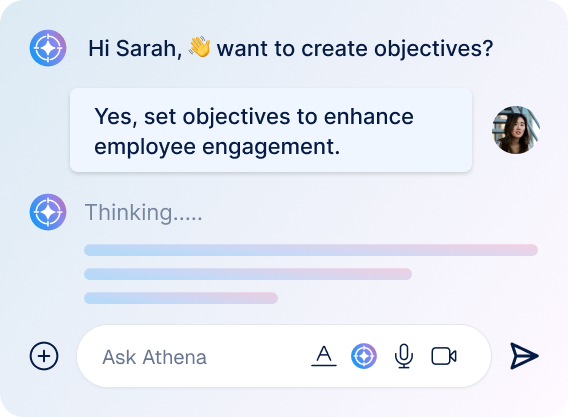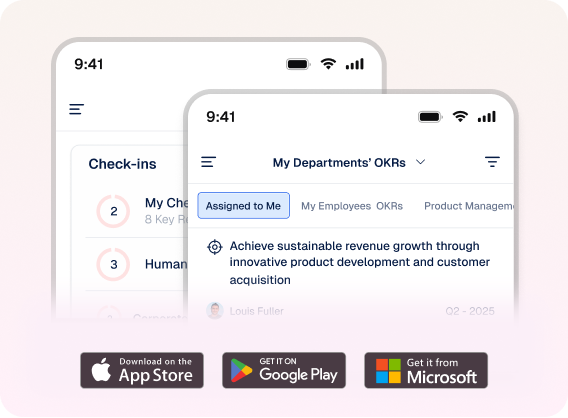What happens if the employee does not agree with their manager’s review? What can the employee do to fix an evaluation, which in their mind, is an inaccurate evaluation?
A performance appraisal is a formal record of a manager’s opinion of the quality of an employee’s work. If the opinion is based on the manager’s honest assessment of how well the employee has performed and is unbiased and without any prejudice, the manager has done a fair assessment.
But what happens if the employee does not agree with their manager’s review? What can the employee do to fix an evaluation, which in their mind, is an inaccurate evaluation?
The employee is faced with three choices:
- “My manager may be right. I’m disappointed, but I’m going to accept this and make the changes that are necessary to justify a better evaluation next year.”
- “This rating is inaccurate, and I’m going to do whatever it takes to change it.”
- “I’m out of here.”
No matter how unhappy and upsetting the review might be, which the employee understandably will be if s/he doesn’t agree with the appraisal, to proceed carefully is the best approach; and the one most likely to earn the employee and favorable appraisal in the future.
Always treat your employees exactly as you want them to treat your best customers.
What to do?

Here are a few steps that the employee can take if they disagree or dispute aspects of their review:
1. Think objectively
To help move forward from a disappointing review, the employee must set emotions aside and be objective. The following will help with some self-introspection:
- How much of the review was actually true and what are the aspects that need to be worked on?
- Gather other viewpoints to help understand why the review was such
- The boss and employee need to be on the same page about what the expectations are so that this disagreement about the review doesn’t happen again in the future
- Understand what are the parameters upon which success will be measured
- Establish a process for frequent communication with and feedback from the boss so that the expectations are in alignment.
2. Set up a follow up meeting
A negative review can be quite a blow, especially when it is least expected. The first reaction that might come to mind is to fight against it or to leave the organization. However, it helps to take a breather and think things through before taking any major decisions:
- Get more insight. Try to understand why the review was the way it was instead of making any assumptions.
- Set up a meeting with the manager and explain to them that the assessment was least expected and would like to understand the review better.
- Ask for specific examples of the negative points that were brought up and be ready with examples of achievement and talking points. Gather all the evidence and form a counter case.
- Keep an open mind. Look at the situation from the manager’s perspective as well. Getting defensive will work against having an open and productive conversation.
3. Get others’ viewpoints
When the manager’s review is not satisfactory, get others’ perspectives on the matter. While asking people with similar mindsets and ones who really like the assessee makes sense, it’s not enough, because their views will be biased in the employee’s favor and they will say feel-good things. This will not help the employee recognize their blind spots. Therefore, remember to ask others as well who were involved on the project as the employee was to understand what their assessment was. This will help the employee understand if there are any blind spots that were hitherto unknown, and s/he would have approached it differently. It’s likely that the manager also might have missed some key information which could swing things in the employee’s favor.
4. Plan for the next review ahead of times
Performance review time will come again. So it’s important to start getting ready for the next well ahead of time. Be prepared for the next review to avoid a disappointing review from happening again. Here are a few tips on how to do that:
- Save all email correspondence and examples of good work done.
- Keep records, printed or otherwise of good client feedback on a job well done.
- Be very clear on what the expectations are. Make sure the manager and employee are on the same page.
- Once the expectations are set, make sure this conversation is documented so that one can refer back to it should the need arise. A brief email recap or minutes of the meeting can make sure that the expectations are set straight and are agreed upon by both parties.
- The employee needs to communicate with the manager on a regular basis to check in on progress, no matter how busy the day-to-day work gets.
- For every review meeting with the manager, print out the expectations email, come prepared with examples and emails ready for discussion. Giving very specific information to the manager will give him/her something to base the discussion upon rather than leaving it open ended with a “How has my performance been?”
- Specifics give a more detailed and targeted response.
5. Be Consistent
Make an effort to learn from mistakes and make a conscious effort to listen to feedback and make the changes that have been asked for.
A change in behavior takes a lot of work and willpower, for it is easy to revert to the old ways. But remember that by being consistent, it’ll be possible to bring about a change in behavior. And then the manager won’t get an excuse to review the employee negatively.
Devise an improvement plan that will help get back and stay on track to become a rockstar employee. Come up with one’s own ideas at first and consult the manager for their input later when the ideas are in place – this shows initiative to analyse areas where the employee is lacking the skills and has thought of ways by which s/he can improve.
6. Speak to HR if needed
If the above points have been considered and the feeling is that the review is grossly incorrect or based on false information, it might be wise to get HR or the manager’s manager involved, depending who is available. They can often be a helpful resource to help sort through things more objectively, and they can suggest process improvements to ensure that performance reviews are conducted fairly and accurately in the future.
7. Explore what options lie ahead
After having considered all of the above points, if the relationship with the manager and organization is beyond repair after a really bad performance review, it might be prudent to start looking for work elsewhere. Use all the information that has been gathered so far and plan steps to think things through, and to feel empowered. This could either mean finding more effective ways to communicate with the manager, or it could mean it’s time to seek out greener pastures. Take the time to perfect the resume and cover letter, and find a job in which it would be possible to excel at.
A bad review can leave a bad taste in the mouth, but bear in mind that the objective is to become better at the job, where the employee and manager both are happy by the time the next evaluation comes around.




